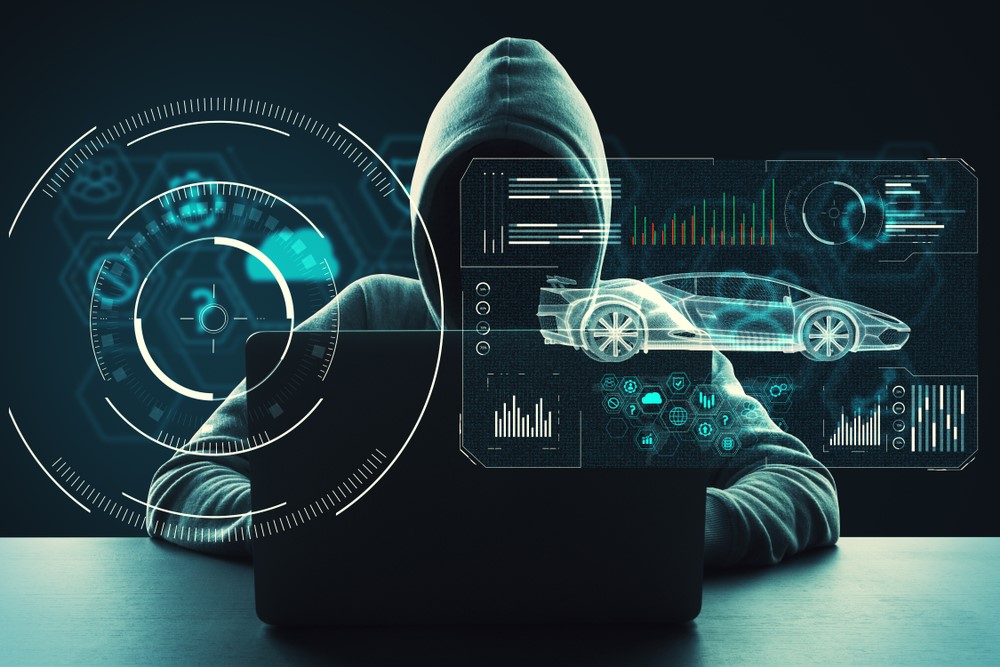Is Your Connected Car Safe From Hackers?

New car technology uses sensors and connected technology to make driving easier and safer for you. You can sync your phone to your car and your car can store personal information about you. This type of convenience, though, could expose you to hackers stealing your car and your personal information.
So, does your car insurance cover cyber-attacks on your car?
Get a Car Insurance Quote
Auto cybersecurity polices are not common yet
Car theft is covered under comprehensive coverage, which is optional car insurance. Comprehensive car insurance does not typically include coverage for cyber-attacks on your car's technology.
A few insurers are starting to offer car insurance policies that include coverage for cyber threats. Auto cybersecurity policies that protect against cyber-attacks, identity theft, and ransomware are not widespread because cyber-attacks attacks on everyday drivers aren’t common yet. With new cars having more and more technology, though, could cyber-attacks become a common occurrence for drivers?
Did you know? Electric vehicles (EVs) can be at risk when their drivers connect to public charging stations, often through an app, for breaches and malware infection.
Warning! A connected car has a lot of information about you and your vehicle
Is your connected car safe from hackers? Is it safe from third parties selling information about you and your driving habits? Almost anything that’s connected to a car can store and expose details about you and your vehicle.
Here are key details that a connected car might collect about you:
- Location data: Precise GPS location through navigation systems
- Driving behavior: Braking patterns, speed, turning maneuvers
- Vehicle info: Engine performance, tire pressure, battery level.
- What you do in your car: Music listening history, radio presets, voice commands
- Phone integration: Contacts, call logs, text messages from paired smartphones
- Biometric data: Drowsiness detection, seatbelt usage, some cars have facial recognition technology
- External environment info: Information from cameras and sensors about your surroundings
- More data about you: Car companies can get data about you from your phone when you download the car’s app
What can be done with your data from your connected car?
This information is often collected by car manufacturers and it may be sold to third parties such as data brokers that in turn can sell it to insurers.
What can hackers do with this info? Hackers can use information from a connected vehicle to steal personal data that could lead to identity theft. These bad actors could also make physical threats by manipulating vehicle systems like brakes or steering, putting the driver at risk. They could also steal your car by remotely unlocking it.
What are some precautions that you can take against cyber hackers?
- Try not to input every detail about yourself (such as your address and birth date) into your car.
- You don’t need to connect your phone to your car if you don’t feel comfortable doing this.
- Update your vehicle’s software. If you don’t do this, it’s more likely to be hacked because outdated software can contain vulnerabilities that hackers can use to gain access to your car’s systems, potentially allowing them to control certain functions or steal data.
- Limit the use of unnecessary connected features in your car until you've confirmed your software is up to date.
- To protect your remote start app, change the default password. Instead use strong and unique credentials and do not reuse your passwords from other services. Enable two-factor authentication if you can.
- Avoid public Wi-Fi networks because they aren’t always secure.
- Turn off Bluetooth when not in use.
- Be suspect of information privacy when it’s saved on phone apps or vehicles.
- Don’t save home and work addresses on Google Maps.
- Protect your key fob at home in a metal can or layers of foil. You can also use a metal wire cage called a Faraday cage, which prevents the fob from communicating with hackers.
Note: Anything connected to the internet is vulnerable to hackers.
Privacy issues with connected cars
Connected cars raise privacy issues, such as personally identifiable information about you, location data, driving data, biometric data, and data sharing with third parties without your consent.
Check your car's privacy settings:
Most car manufacturers provide access to settings where you can manage what data is collected and who it can be shared with.
Carefully review your car's privacy policy to understand what data is collected, how it's used, and how it could be shared.
Many car companies allow you to opt out of sharing certain data categories, such as location details or driving habits.
Be aware that hackers might exploit vulnerabilities in your car’s software and steal personal information. Find out what data might be shared about you and your driving habits with third parties. Stay vigilant and mindful about vehicle cybersecurity and your privacy.







